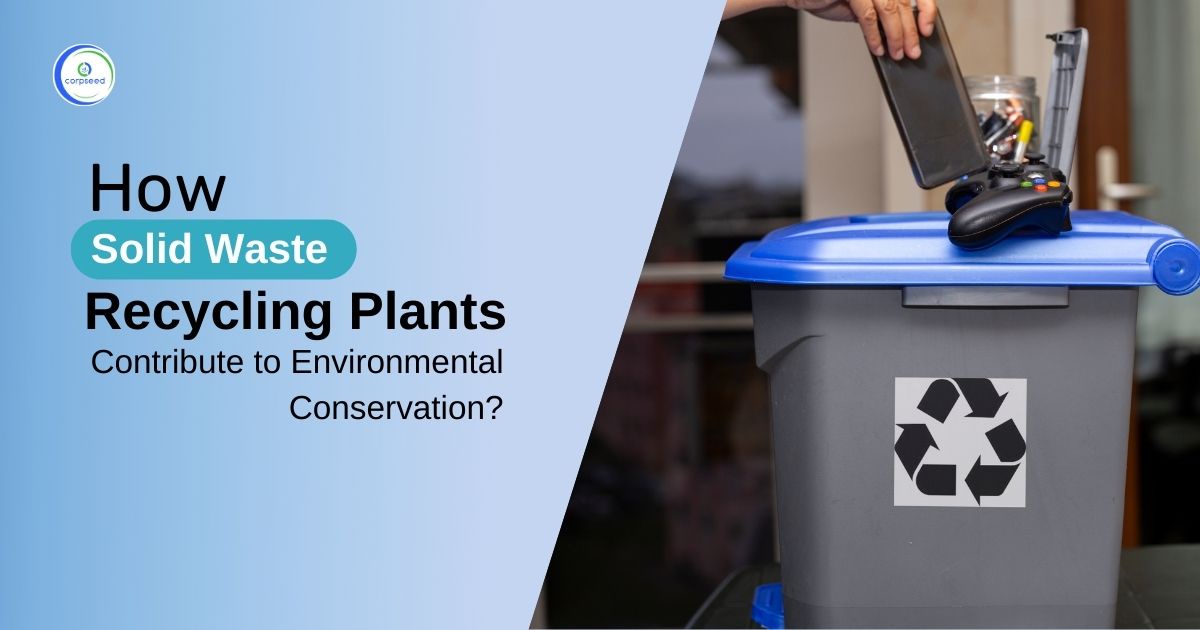Introduction:
Solid waste management is a critical aspect of maintaining a sustainable environment. With the increasing population and rapid urbanization, the amount of waste generated has reached hazardous levels. Effective management of solid waste is essential to minimize the negative impact on the environment and promote a cleaner and healthier planet. The setting up of solid waste recycling facilities is an important step towards achieving this objective. These facilities play an essential role in recycling and reusing waste materials, thereby reducing the strain on natural resources and mitigating environmental pollution.
What is Solid Waste Management?
Solid waste management refers to the organized and systematic handling, collection, transportation, disposal, and recycling of solid waste materials generated by human activities. It encompasses a wide range of waste types, including household waste, industrial waste, construction debris, and agricultural waste. The aim of solid waste management is to minimize the amount of waste sent to landfills and promote sustainable practices that reduce environmental harm.
What is a Solid Waste Management recycling plant?
A solid waste management recycling plant is a specialized facility designed to handle and process various types of solid waste materials for recycling and resource recovery. These plants are equipped with advanced technologies and machinery to efficiently sort, separate, and process different waste streams, such as paper, plastic, glass, metals, and organic waste. The primary goal of a solid waste management recycling plant is to minimize the amount of waste sent to landfills or incinerators by extracting valuable materials from the waste stream and transforming them into reusable resources.
Benefits of setting up a Solid Waste Management Recycling Plant for businesses
- It helps businesses reduce waste disposal costs by diverting waste from costly landfilling or incineration methods.
- It can generate revenue by selling recycled materials to manufacturers and other industries that utilize them as raw materials.
- Setting up a recycling plant demonstrates a commitment to environmental sustainability,
- Ensure compliance with waste management regulations and reduce the environmental impact of business operations.
- It enables businesses to conserve natural resources by recovering valuable materials.
- It reduces greenhouse gas emissions associated with landfilling or incineration, contributing to the mitigation of climate change.
- By promoting recycling and resource conservation, businesses contribute to a circular economy
- It encourages innovation in waste processing technologies and provides opportunities for research and development.
Contribution towards Environmental Conservation:
- Resource Conservation: Recycling plants help conserve natural resources by recovering valuable materials from waste. By recycling these materials, the demand for virgin resources is reduced, leading to a decreased need for mining, deforestation, and energy-intensive manufacturing processes. This conserving of resources is helping to maintain natural habitats and reduce energy consumption, as well as mitigating resource depletion.
- Waste Diversion from Landfills: The ability to redirect a significant proportion of waste from landfills is one of the most important benefits of reprocessing plants. When waste decomposes in landfills, it produces greenhouse gases and harmful leachate, polluting soil and water. The environmental impact is greatly reduced by diverting waste from landfills through recycling and promoting a cleaner and healthier environment.
- Reduced Pollution: When waste materials are burned or left to decompose in landfills, they release toxic substances and greenhouse gases into the atmosphere, contributing to air pollution and climate change. Recycling also prevents the release of toxic substances into the environment, promoting a safer and healthier ecosystem.
- Energy Savings: By reducing the energy required for the production of new materials, recycling plants contribute to energy conservation. It is estimated that the energy needed to manufacture new aluminum cans could be saved by up to 95% if they are recycled. By conserving energy, recycling plants help reduce reliance on fossil fuels and promotes a more sustainable and eco-friendly energy future.
- Promoting Circular Economy: By recycling and reusing waste materials, these plants contribute to closing the resource loop. This reduces the dependence on finite resources and fosters a sustainable approach where materials are continuously reused, minimizing waste generation and promoting long-term environmental conservation.
Exploring Different Types of Waste Processed in Recycling Plants
- Paper and Cardboard: Recycling plants handle various paper-based waste, including newspapers, magazines, office paper, and cardboard packaging. These materials undergo sorting, shredding, and pulping processes to remove contaminants and create recycled pulp.
- Plastics: Solid waste recycling plants handle different types of plastic waste, including bottles, containers, packaging materials, and plastic films. Through sorting, cleaning, shredding, and melting processes, plastics are transformed into pellets or flakes.
- Glass: Recycling plants processes glass waste, such as bottles, jars, and window panes. The glass is sorted by color, crushed, and melted at high temperatures to produce a cullet, which is used to manufacture new glass products.
- Metals: Metal waste, such as cans, appliances, and scrap metal, undergoes sorting, shredding, and smelting processes to separate different types of metals. These metals are then used as raw materials in the manufacturing industry.
- Organic Waste: Some solid waste recycling plants also process organic waste, including food waste, garden waste, and agricultural waste. Through composting or anaerobic digestion, organic waste is transformed into nutrient-rich compost or biogas.
- Electronic Waste (E-waste): Recycling plants specializing in e-waste handle discarded electronic devices such as computers, laptops, mobile phones, and televisions. Proper e-waste recycling prevents hazardous materials from polluting the environment and facilitates the reuse of valuable resources.
Conclusion
In conclusion, solid waste recycling plants make valuable contributions to environmental conservation. Solid waste recycling plants are instrumental in environmental conservation efforts. By embracing recycling and sustainable waste management practices, we can contribute to a cleaner, greener, and healthier planet for generations to come.


No comments yet